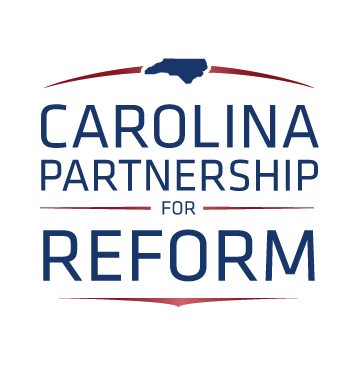Irregularities Already Infecting MVP-Southgate Permitting Process
In 2020, DEQ’s staff expert recommended approving MVP-Southgate pipeline permit. Instead, the agency denied the permit.
Another permit review is coming soon. Recent history gives little hope the Cooper Administration will consider the application faithfully.
Nobody disputes these facts: Natural gas powers 36% of North Carolina’s electricity. The state’s natural gas supply comes from a single pipeline. It would be very bad if that pipeline went down. A new pipeline, called MVP-Southgate, can be a second source of natural gas for North Carolina – if the Cooper Administration approves it.
What is in dispute is whether the Cooper Administration will push the bounds of ethics and the law (again) to jeopardize the water quality certification necessary for MVP-Southgate to advance. If approved, MVP-Southgate will connect to the main Mountain Valley Pipeline at the VA/NC border. The main Mountain Valley Pipeline should be completed by the end of this year.
The Cooper Administration has already behaved oddly in its MVP-Southgate review, earning a rebuke from a federal court when it considered the project’s water quality certification the last time around.
During that review, the DEQ expert charged with overseeing the application wrote in his report, “The project is not expected to violate water quality standards if the certification is issued and if the conditions in the 401 Water Quality Certifications are fully complied with.”
He recommended to his superiors that DEQ approve the permit. But at the time, the main Mountain Valley Pipeline in Virginia was in legal limbo, so it wasn’t a sure bet that MVP-Southgate in North Carolina would have anything to connect to in Virginia.
So, the DEQ expert added a reasonable caveat: “Construction of the MVP-Southgate pipeline cannot occur” until “all necessary permits and authorizations have been obtained” for the main pipeline in Virginia. Fair enough.
Public records show the DEQ expert finalized his 24-page report at 1:51 PM on August 11, 2020.
Just 61 minutes later, at 2:52 PM, DEQ issued a three-page letter outright denying the water quality permit.
It is absurd to believe that DEQ leadership read the staff expert’s 24-page report and then drafted the agency’s denial letter all in 61 minutes. Obviously, they all had general awareness of what was happening, likely well before August 11.
That may explain why one sentence was tacked onto the end of the staff expert’s recommendation: “Option 2: It is recommended that [certification] be denied.” That’s it – no other explanation. Just an oddly placed second option added to the end – the same option DEQ leadership coincidentally accepted that same day.
Indeed, even the Fourth Circuit Court of Appeals called out this irregularity in litigation over the decision. (Recall the Fourth Circuit has been so in the bag against the pipeline that Congress this year stripped it of its jurisdiction in the matter.)
“The hearing officer wrote that ‘MVP has minimized impacts to surface waters and wetlands to the greatest extent practical.’ That statement seems to conflict with…the language used in the Department's denial letter,” the Fourth Circuit wrote. “The agency failed to ‘reasonably reflect upon the information contained in the record and grapple with contrary evidence.’”
The Fourth Circuit ordered DEQ to try again, and they of course reached the same conclusion in a new denial letter issued in 2021.
The point is this: DEQ has already mismanaged the MVP-Southgate permitting process. The agency has already been called out for irregularities by a federal court.
A similar pattern played out just a few years ago when the Cooper Administration considered permits for the Atlantic Coast Pipeline. DEQ hearing officer recommendations were ignored or put off for months. In the meantime, Cooper and his top aides were texting one another about delaying permit approval until Duke Energy reached a favorable deal with their solar industry allies during private contract negotiations.
A legislative report authored by three retired federal agents concluded that “criminal violations may have occurred” during that permit review process.
MVP-Southgate will likely apply again for a water quality certification in the next few months. The Cooper Administration can’t be trusted to review the application faithfully.

